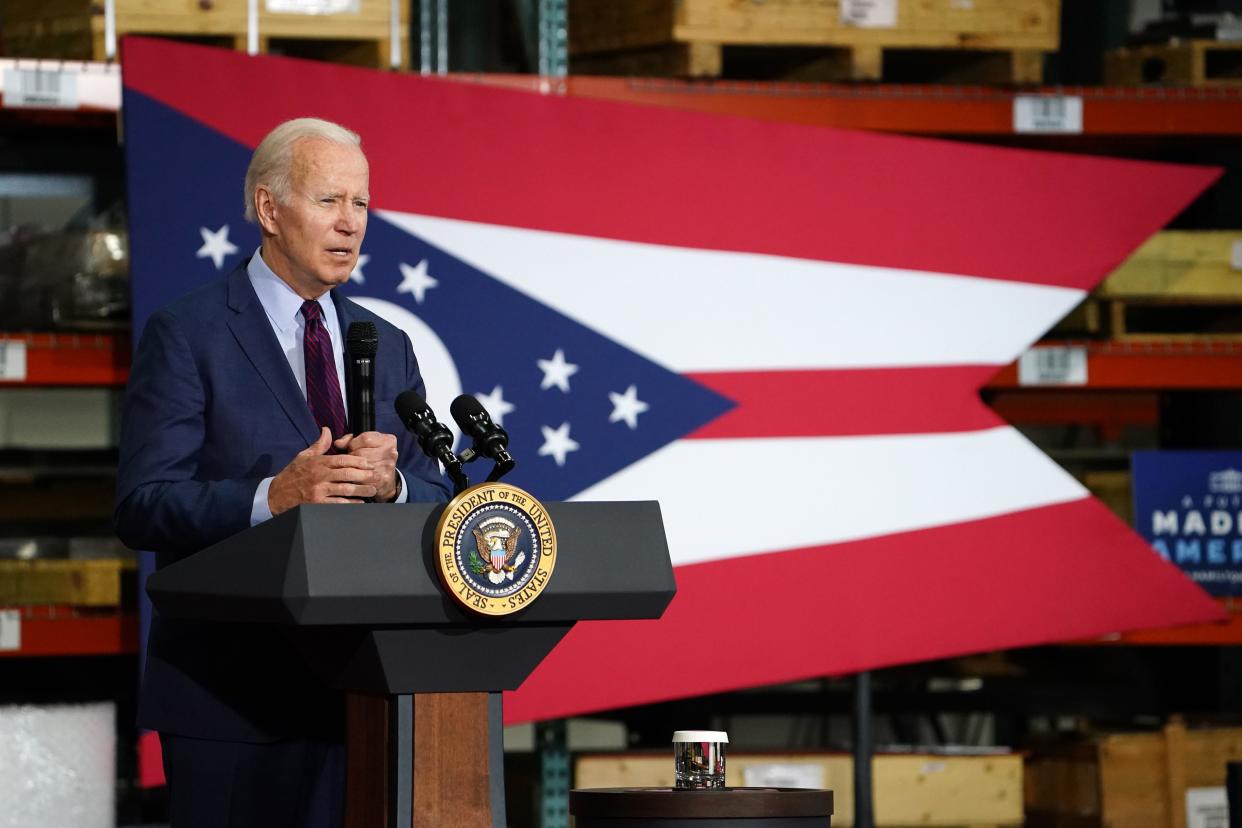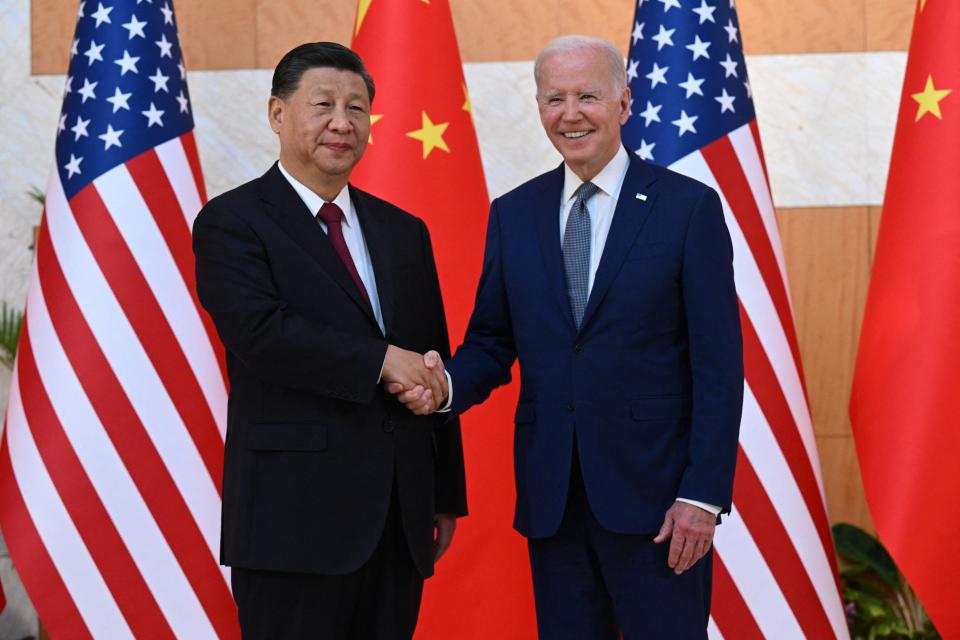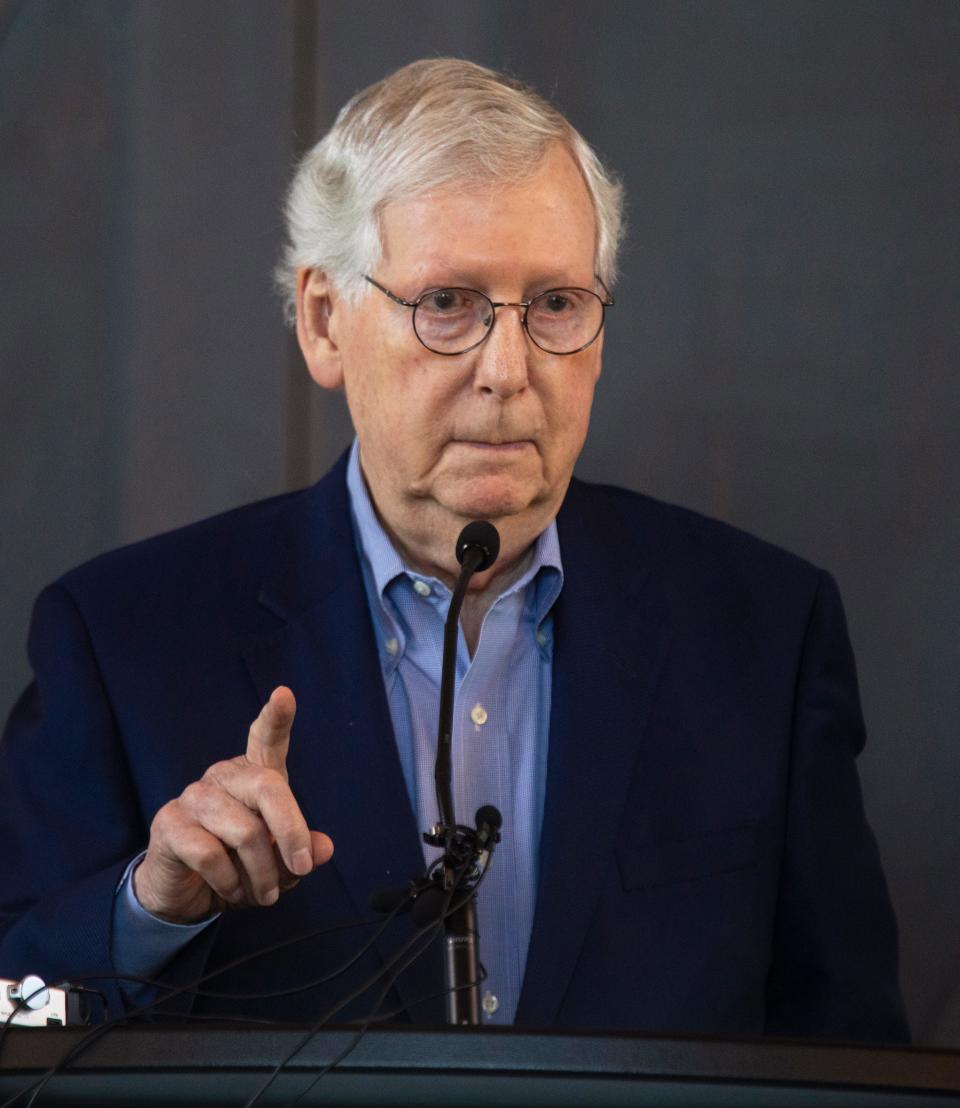Opinion: China biggest winner in midterm elections

- Oops!Something went wrong.Please try again later.
- Oops!Something went wrong.Please try again later.
This year’s midterm elections inspired Americans to vote on several critical policies, but none likely more important than policies that will dictate the fate of the U.S. economy in months to come. A poll conducted by The Economist revealed 73% of voters had been thinking about the economy "a lot" leading up to midterms. That same poll also revealed roughly 70% of voters felt the economy is in a "less than fair," or "poor," state. This fear among voters isn’t unfounded, either, as June 2022 had the highest inflation figure in over 40 years, with the DOW Jones having lost 20% of its value this year.
While inflation occupies major portions of the average American’s conscience, feelings towards China and its deep relationships with the U.S. economy continue to grow stale. A recent research poll conducted by the Pew Research Center found that 89% of Americans view China as a "competitor," or "enemy," rather than a global partner. Additionally, 48% believe that limiting China’s influence within the U.S. economy should be our top priority.
The simplest answer is our government’s full focus on becoming a mostly production-based economy rather than the current consumptive type Americans are forced to rely upon − fewer imports, more exports. It’s about correcting our country’s imbalances − shifting efforts back onto ourselves and our communities that are still recovering from COVID’s stagnation.
The trade deficit for goods this year is expected to be over $1 trillion. Estimates show that increasing Gross Domestic Product by $1 trillion, by decreasing reliance on imports and producing more goods domestically, would equate to 5.7 million potential jobs with an average $80,000 salary. Those are potential jobs that Americans could be filling today if our government officials made those necessary corrections.

Having kept a skeptical eye on the current administration, President Joe Biden’s cabinet has done little to effectively combat the issue of inflation, nor address U.S. reliance on China. First, U.S. Attorney Hunter Biden, the president’s second son, had deep ties with CEFC China Energy − a large gas/oil company − with consultation contracts worth millions of dollars. This being a small example taken from years of China deals and other overseas ventures involving the Biden family, there exists an obvious conflict of interest.
Second, executive board members of the viral app Tik Tok recently recruited the support of President Biden’s former campaign secretary Jamal Brown, to counter arguments made by FCC Commissioner Brendan Carr to remove the app from the U.S. market. This raises a red flag considering evidence collected by The Economist shows that Chinese-language news outside of China is largely owned by the Chinese government.
Republicans are just as equally culpable for our government’s reluctance to pull back on import spending with officials like Senate Republican leader Mitch McConnell of Kentucky, who voted against solutions like "The America COMPETES Act of 2022" − a bill that would see major investment in domestic manufacturing. Senator McConnell’s family has a history with overseas ventures, as his father-in-law James S.C. Chao has borrowed as much as $400 million from the Chinese government and operated with Chinese companies routinely.

Kevin McCarthy, the House of Representatives Minority Leader, actively blocked bipartisan attempts to limit Chinese companies from contracting with U.S. transit systems. McCarthy aimed to protect BYD motors, a subdivision of massive Chinese manufacturer BYD Co., because of their manufacturing plant within his congressional district in California.
Furthermore, it was also Republican senators who supported "The United States Innovation and Competition Act (USICA)," which would remove presidential powers to fight back China’s influence and enable Chinese importers to claim "lost profitability" from previously imposed tariffs.
Although Republicans are popularly associated with nationalism and a stronger stance against China’s influence, votes from the midterm were more in favor of the Democratic Party than anticipated. As of today, the Democrats have at least 50 senators and control the U.S. Senate with Vice President Kamala Harris voting as a tie-breaker. Meanwhile, the Republicans will control the house with at least 219 house seats being called for their party.
A record number of younger voters have begun to show strength in recent elections, with attention focused mainly on human rights and other important social issues − topics of concern on which Republicans have failed to either take a stance or express strong opposing beliefs. Whatever the case, the attention of younger voters is wholly affixed on social issues without significant interest in economic principles. However, it’s all important, and that’s why educating them in both social and economic schools of thought matters.
Politicians on both sides of the spectrum need to outline their stances towards nationalization and educate our voters about the importance of domestic manufacturing so we can pull together as a country to put America first.
Charles Shor is the former president and CEO of Duro Bag and founder of the Charles L. Shor Foundation for Epilepsy Research.

This article originally appeared on Cincinnati Enquirer: Opinion: China biggest winner in midterm elections

